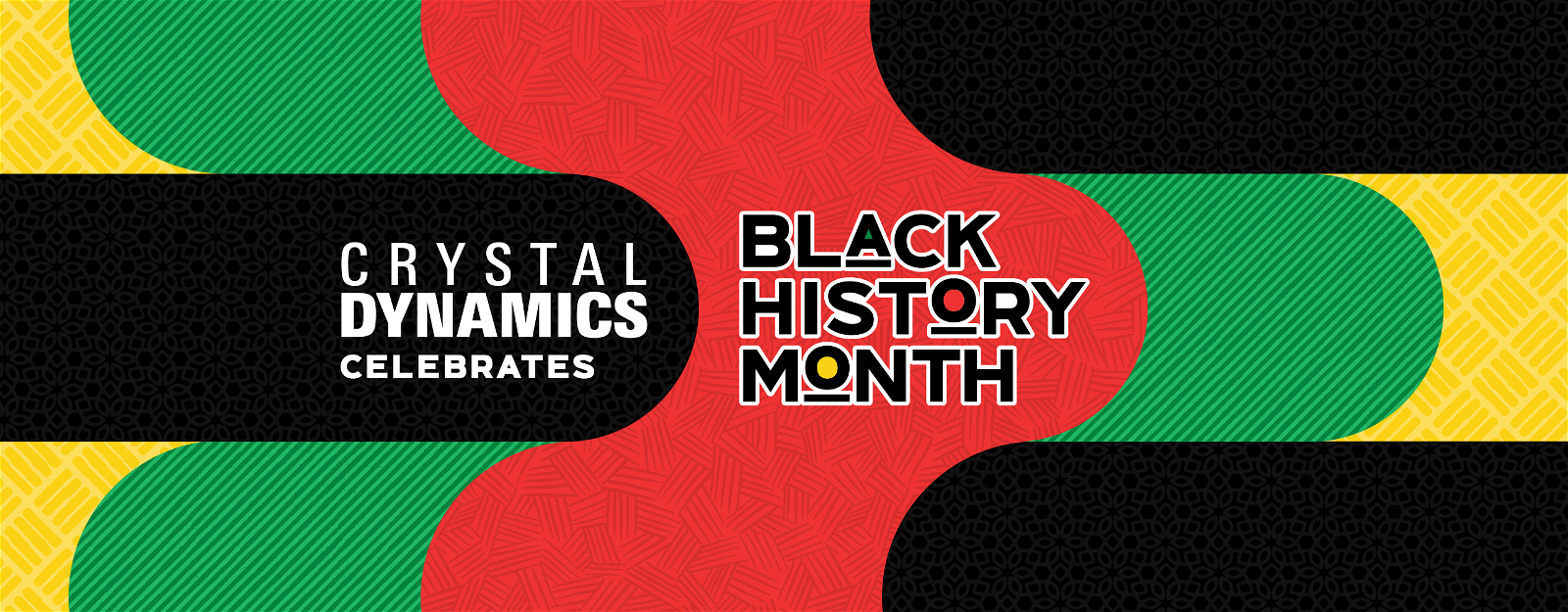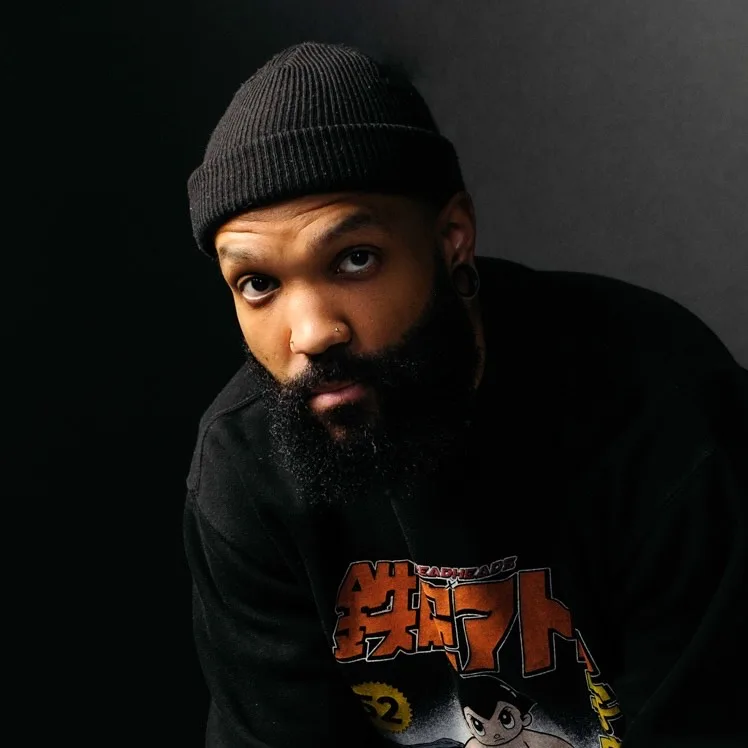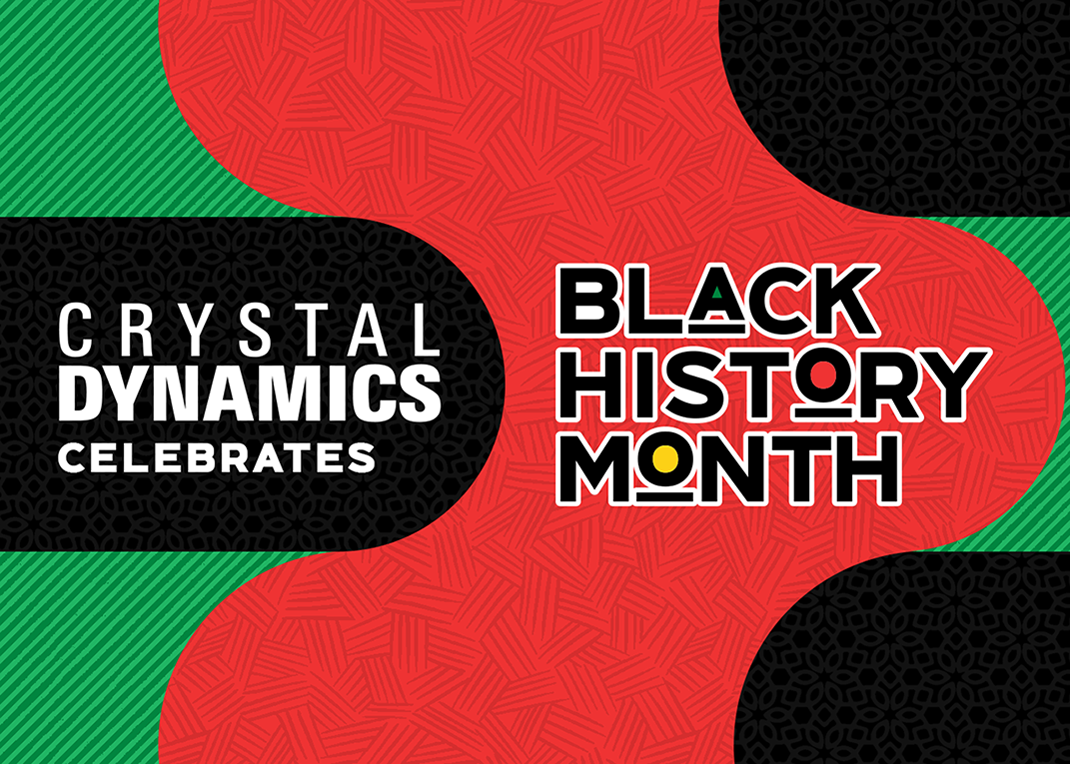


Making Black History: An Interview with Derrick Fields
Happy Black History month! It’s a new year, which means Vanesa is here with a new wave of Black Excellence! This year, we’re focusing on Black devs, Black employees, and what Black legacy looks like in gaming. We’re kicking things off with Derrick Fields, the owner of Waking Oni Games and a professor at Northwestern University. I had the opportunity to interview him about who he is, his journey into gaming, and why he saw Waking Oni as a need in the industry. We also talked about his game Onsen Master and his hopes for the future of Black game dev!
All answers here are preserved exactly as they were written upon answering.
Who are you, and what is Waking Oni Games?
“Who am I? What a time to confront that answer, ha! I imagine many, like myself, are contemplating their own answer to that question. Well, today I’d consider myself somewhere in the margin of fleshy and incorporeal, composited together to enact upon an overactive imagination.
“I am a father, a professor, and founder/game director at Waking Oni Games an indie studio most likely built upon the same aforementioned compositions, but I would add that the collective imaginations and talents have come together to make exciting media to drive conversations around the exchange of Black and Japanese media and culture.”
How long have you been involved in gaming?
“You asked for it! Gaming, for me, goes all the way back to cords and cartridges at the neighbor’s house. I did not see my own console till the Sega 16-bit was released, and I can recall many attempts to complete titles like Aladdin, Rocket Knight, and Sonic. By no means would I have considered myself good at them or even really understanding them much. Paired with a loving mother who regularly sent me outside to use my imagination, I spent a lot of time reenacting scenes of my favorite comic and TV characters across yards and up a few trees I had no business climbing (my wrist still makes a funny click if I turn it just right). When I was not outside, I spent a lot of time creating worlds and characters in numerous sketchbooks.
“That radically changed when the PlayStation was first released. Through magazines, demo discs, and the few games I owned, I was thrust into a world that felt truly immersive for the first time. Games like Final Fantasy 9 opened my mind to imaginative character design, while Tenchu or the aptly titled Ninja (Shadow of Darkness) allowed me to embody the coolest interpretations of ninja, which I thought only stayed on the TV or movie screen. The PS1/PSX fundamentally shifted my perspective on video games, and I was officially hooked. I remember begging my mom for a GamePro Magazine subscription so that I could experience new games through some of its demo discs. When I wasn’t challenging myself to complete snippets of titles yet released or too expensive, I often traded and borrowed games from other friends, who continued to introduce me to a variety of role-playing games, fighting games, and action-adventure titles. That’s when I found out about RPG Maker.
“RPG Maker, for those who are not aware, was a creator tool that allowed you to make your own games for PlayStation. It had PC versions but this was the first release I ever knew of. Imagine 5th-grader me realizing there are tools out there to make your own games. It didn’t even dawn on me before then that actual people were behind all of these experiences. What was I thinking? I would later spend an inordinate amount of time trying to understand the console game engine and probably did not do a very good job, but it unlocked the thought that I could take the worlds sketched across sheets of paper and bring them into something someone could one day play with a controller.”
“And then I forgot all about it.
“You see, at the time, I lived in Shreveport, Louisiana, and for a brief period, we were an Air Force family. My stepfather at the time was stationed at Barksdale Air Force Base, which came with a big nomadic shift to the very hot south from my roots in Ohio. Well, all that was coming to an end. I was entering high school, and my family was considering a move back to our home state. We later settled just outside of Columbus, and I think the entire shift of new roots, new school, and new friends caused me to forget a little bit about the small game developer seed that was planted in me.
“That all came rushing back, thanks to PC gaming and massively multiplayer online role-playing games.
“Likening myself a comic artist and illustrator, I was still filling up sketchbooks and being sent out the door by my mom, but this time, I ventured to my friend’s homes to engage with broader games, graphics, and a hefty amount of tabletop roleplaying. I cannot quite remember the order of events here, but during my four years of high school, I was once again deeply entrenched in the idea of creating my own game now, thanks to the very advanced and definitely realistic graphic capability of the PlayStation 2 and eventually Xbox. My moods for inspiration would shift among the genres I now played the most, RPGs and Horror games. From Final Fantasy XII to Call of Cthulhu: Dark Corners of the Earth, I continued to be inspired by the potential for video games to bring players to places they have never seen before.
“After graduating, college for me was settled. I would pursue becoming a concept artist for video games and help characters as influential as the one that inspired me. I later attended Columbus College of Art and Design, and while it challenged me to understand art and color theory, something felt off. The idea of creating characters at the time didn’t feel as cutting edge as the 3D characters I was looking at on-screen, and I wanted to have control of that experience. I went to my advisor to ask about 3D modeling and received the unfortunate reply, ‘Sorry, we don’t do that here.’ You see, at the time, CCAD didn’t offer 3D Modeling for games, let alone have a degree for it. I would have had to pursue the animation track instead to get an introduction to software like Maya, but it didn’t feel satisfying enough (time would later see me learning animation anyway). Lucky for me, my mom worked for an education board and had recently heard about a small university down in Portsmouth, Ohio, offering exactly what I was looking for—a degree in game design. Without hesitation, I asked if I could transfer and was transported to Shawnee State University, which had a distinct border to Kentucky, thanks to the Ohio River. I had finally made it! Or so I thought.

“Let me start by saying Shawnee State University is a wonderful university, and its gaming degree and faculty hold some of my most formative introductions to 3D modeling, game engines, and game design. My relationship with the university, however, was complicated by its surrounding town. Outside of the campus, I held several part-time jobs (and almost tried to open a video game café) but unfortunately dealt with a great deal of discrimination and racism. Being a Black queer individual from Columbus, as you might imagine, came with its challenges in this southern Ohio city. My time here would soon end after my life was threatened, and I no longer felt safe to pursue the degree of my dreams among my talented peers. So, I transferred one last time to Kent State University, kept my head down, and completed the last leg of my university adventure largely online. Thanks to my time at the two other universities, I did not have much left to complete and graduated with a degree in Animation Game “Design (there’s that animation returning for vengeance). With a degree in hand and a heaping amount of excitement and naivety, I leaped right into applying my portfolio to some of my favorite game studios. I only knew of the ones I personally played or saw featured in the magazine, so that’s where I started. As it would turn out, getting a job in the industry was not easy by any measure. I did not know about events like the Game Developer’s Conference and certainly could not afford to get across the country, so all of this together made it hard to understand what was out there.
“I once again found myself placing these dreams in the back seat.
“It was not all gloom, however. Being an artist took me to many different anime conventions, where I eventually landed a full-time job with a cosplay wig company. I spent a lot of my time traveling across the country and making wonderful connections all around the second most important influence on my life next to games– anime. I even made it to my very first E3 after creating a small 2D mobile game about crashing cars. Getting a chance to experience this space once again brought my goals to the front seat, and I started to develop a lot of enthusiasm for making more of my own games. Some time and a heaping dose of domestic travel to more pop culture events eventually helped to bridge a connection to new friends who shared a similar dream for leaping into the industry. We would later become roommates and work part-time on a project that eventually became Waking Oni Game’s first title, Onsen Master.
“With that, I had finally made what felt like an official entry into the game’s industry.”
You’re also a professor by day: what are some of the topics you share/teach?
“Correct! I am an Assistant Professor of Instruction at Northwestern University. Go Wildcats! There, I teach sequence courses for Game Design and 3D Modeling and, most recently, have introduced Game Design Entrepreneurship with the hope of helping students understand some of the biz-dev sides of the gaming industry. We hosted our first game jam last year through the revival of a micro game conference and are actively expanding game-related course offerings. To me, the future of games is brightest with the next generation of creators.”
What were some of your biggest inspirations to pursue a career in gaming and teaching?
“Representation and providing access to burgeoning creators remain paramount as my biggest motivators for pursuing a career in games and teaching. I believe the next generation of creators will find new ways to disrupt the industry and continue innovation. That said, I hope to continue contributing to the development of culturally authentic gameplay experiences so that wider audiences may continue to see themselves represented in exciting narratives and experiences. When it comes to teaching, for me this means creating classrooms and curriculum that validate and empower students, providing them with tools and access to opportunities to help them excel. I firmly believe supporting these two pillars can help cultivate environments where everyone feels valued and supported, fostering a sense of belonging and fueling creativity.”
Tell us about your game Onsen Master.
“Onsen Master is an unapologetic love letter to my favorite Ghibli Film, Spirited Away. It is the first game out of Waking Oni and represents the start of a much larger conversation about exploring the cross-cultural conversation between Black and Japanese media. Through it, I hope to send a signal that we are only just getting started in creating larger, more impactful titles for players to engage with. As for the story, well, I don’t want to spoil anything, but it is a cute tale about one young pupil’s journey in reviving the local onsen on the fantasy island of Izajima while engaging with its locals, confronting peculiar spirits called yokai, and seeking out the great Onsen Master.”
What is your ultimate end goal in creating games at Waking Oni? What are your hopes for Black game devs and educators in the future?
“As a game developer, my mission is to craft immersive and culturally authentic experiences that explore the intersections of Black and Japanese cultures. It’s not only about recognizing the influence of Black culture on anime but also about providing a platform for meaningful dialogue and representation within the gaming world. Over the years, anime has frequently drawn inspiration from Black culture, from its music to its fashion and beyond. Yet, while this influence is evident, there’s often been a lack of agency for Black creators to actively participate in shaping these narratives. My aim is to change that by creating games that not only celebrate the rich tapestry of Black and Japanese cultures but also deepen the cultural conversation by returning the influence through entertainment in the form of gaming.”
“In pursuit of this goal, I draw inspiration from impactful titles that have explored cultural themes with depth and authenticity. These games serve as a foundation upon which to build, providing valuable insights into storytelling techniques, character development, and world-building. However, I also recognize the importance of creating new stories that reflect the lived experiences and perspectives of both Black and Japanese communities. By infusing these narratives with authenticity and nuance, I hope to create games that resonate with players on a profound level, sparking thought-provoking discussions and fostering a greater appreciation for cultural diversity. Ultimately, my goal is to contribute to a gaming landscape that celebrates and uplifts the voices of marginalized communities, creating space for their stories to be told and their experiences to be honored.”
What is your favorite genre, and game in it?
“IMMERSIVE SIMS!!! I cannot get enough of them, and this goes way back to my earlier mention of Tenchu. The way this game had me hooked on sneaking around and trying to complete levels with perfect stealth sparked a deep interest in systems and replayability. Today, I still revisit the series but now get to accompany this experience with titles like Dishonored, Hitman, and more. I long for the day that a game like Tenchu makes its return, BUT ONLY IF it’s guaranteed to come with the deliberate subterfuge and patient gameplay of its former years. Please, if you are listening FromSoft, I know Sekiro was almost a Tenchu game, but you can still bring it back.
“I also maintain a profound affinity for Bushido Blade 2 but I will have to save that rant for another time.”
You can find Derrick and his gaming studio/work at:
Waking Oni Games
https://wakingonigames.com
https://twitter.com/wakingonigames

